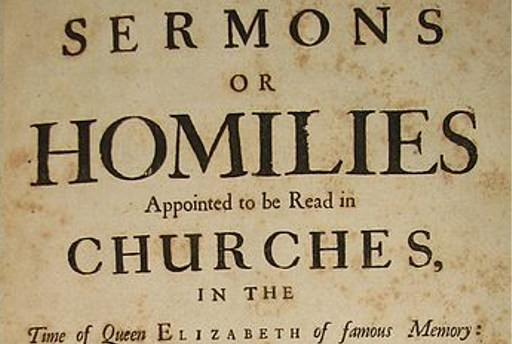At Warwick university, term has only just started again. For lots of freshers, this means settling into new communities and, of course, finding a new church. There are many ways to face this challenge.

Photo: Wikimedia user Tarquin Bina, under CC License
1. Non-committed: I’ll never get involved with a church here. My real church is at home, that’s where I’ve got my friends. So, yeah, maybe I’ll go to church here ‘cos, you know, I still need some teaching to get me going. Or maybe I’ll be content with CU meetings. But I won’t get stuck into a church.
2. Church-hopper: Oh this is exciting! There are soooo many churches to choose from! I need to select the one that fits ME the closest. Hang on a minute, that other church might actually be a tiny bit better. I won’t settle into a church until I have found THE one. And because, of course, no church is perfect (well, except for mine) I won’t settle at all.
3. Forceful Visionary: Well, this church shares a name/denomination/vague resemblance with my home church, so I will go there. But, hang on, it isn’t exactly like what I know from back home. Never mind that, I will soon change that: I’ll talk to the incumbent to let him or her know that the way we do things back home is sooo much more efficient and Christ-like
4. Fanboy or fangirl: I have chosen this church. Because of this, it is bound to be the best church around (because obviously, I cannot make mistakes). This means that anyone I meet should be convinced to come to my church.
5. Disappointed fanboy or fangirl: I had chosen this church, but got sorely disappointed, either because I couldn’t change it to what I wanted it to be or because of something else. Therefore, that church is bad and I’ll let everyone know about it being bad.
—
There may be more reactions – and I’m looking forward to reading about them in the comments. But these five have two things in common: firstly, that I have been (and to some extent still am) guilty of them at some point or other; and secondly, that they betray a vision of church as an object that serves us, rather than as the bride of Christ that is to be served.
An approach to the local church as only a place of service to me as a worshipper is one which is intricately individualistic and bound to disappoint. And there are two ways to look at a church in such a way: one is to see local churches as unchanging and the object of a choice. This means the church will see no growth other than in numbers, and I don’t think that can bring about the Kingdom. The other way is to see yourself as unchanging and the church as molding itself around you; and that means the only growth you can expect personally is the type of growth that fits your pattern. I have come to learn that growth does not tend to come in expected ways.
So here’s what I suggest: when going to a new church, stop and listen. Listen to the community it embodies, listen to its needs as well as to its leadership. Try to empathise with the leadership and to understand why they might be doing what they are doing. This takes time; and it takes commitment: the first two options aren’t open to us. It takes open-mindedness to realise that the local church is here to serve more than just our individual selves, and it takes humility to realise that it is here to serve and challenge us too.
It’s hard not to judge the local church – and there’s a time and a place for challenging leadership. But that time can only come after the acceptance of their greater wisdom – or we’re not speaking in the church at all, we’re speaking to it as outsiders.




